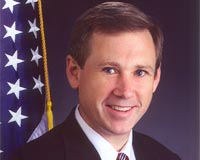| . |  |
. |
Washington (UPI) May 22, 2009 Russia certainly needs the cash coming from its immense annual oil and gas exports, especially its natural gas exports to the 27-nation European Union. Russian President Dmitry Medvedev and Prime Minister Vladimir Putin know that the nations of Europe would be crushed in a very short time without Russia's energy supplies. Putin in particular has over the past decade repeatedly demonstrated his personal mastery of the complexities of energy and economics, and under his direction the Russian energy-producing section has become the one indisputable success story in the otherwise problem-plagued Russian economy. Russia is the world's second-largest exporter of oil and the world's largest combined exporter of oil and gas. Europe would be crushed in a very short time without Russia's energy supplies. In this context, sadly, Europe is militarily irrelevant and economically dependent. Thus Moscow simply ignores it. Which is to say that soft power alone, when dealing with a rather rough neighbor, may not do the trick. The awareness of the absence of real means to counter Russia's aggression such as it exhibited in its five day conquest of one-third of the area of the former Soviet republic of Georgia in the Caucasus last year may be the reason behind a rather resigned European approach to the crisis. The general European attitude can be summed up by the thoughts, "Oh well, this is how the Russians are, you know. When provoked, they jump. Therefore, in order to stay out of trouble, given what happened in Georgia, in the future let's try and avoid other actions that may be interpreted by Moscow as provocations." During the Cold War from 1947 to the disintegration of the Soviet Union at the end of 1991 there was a term to describe this accommodating approach towards the old communist system. It was called "self-Finlandization" -- censoring one's own behavior, thus preventing possible negative repercussions from a powerful neighbor. The reference came from the behavior of post World War II governments in Finland that took special care not to anger or irritate in any way their mighty, nuclear-armed Soviet neighbor next door. It is impossible to say how widespread this attitude is today across the current vast European Union of 27 nations and 500 million people, but it is certainly out there. And it is clear that the current generation of European leaders and opinion-makers are not sounding an alarm. Nor does the general public in the European nations appear to take the need to give the EU military "hard" power seriously either. Part 6: The fact that shooting indiscriminately is a bad idea does not automatically exclude that shooting discriminately, along with sound engagement policies, may be productive (Paolo Liebl von Schirach is the editor of SchirachReport.com, a regular contributor to Swiss radio and an international economic-development expert.) (United Press International's "Outside View" commentaries are written by outside contributors who specialize in a variety of important issues. The views expressed do not necessarily reflect those of United Press International. In the interests of creating an open forum, original submissions are invited.) Share This Article With Planet Earth
Related Links Learn about the Superpowers of the 21st Century at SpaceWar.com Learn about nuclear weapons doctrine and defense at SpaceWar.com
 US lawmakers seek deeper US-China ties on visit
US lawmakers seek deeper US-China ties on visitWashington (AFP) May 22, 2009 China-bound US lawmakers said Friday that their visit aimed to deepen cooperation on pulling the world economy out of its slump and to ease any worries about investments in skyrocketing US debt. Democratic Representative Rick Larsen and Republican Representative Mark Kirk, the co-chairs of the congressional US-China Working Group, arrive at their first stop, Hong Kong, on Monday. In sepa ... read more |
|
| The content herein, unless otherwise known to be public domain, are Copyright 1995-2009 - SpaceDaily. AFP and UPI Wire Stories are copyright Agence France-Presse and United Press International. ESA Portal Reports are copyright European Space Agency. All NASA sourced material is public domain. Additional copyrights may apply in whole or part to other bona fide parties. Advertising does not imply endorsement,agreement or approval of any opinions, statements or information provided by SpaceDaily on any Web page published or hosted by SpaceDaily. Privacy Statement |